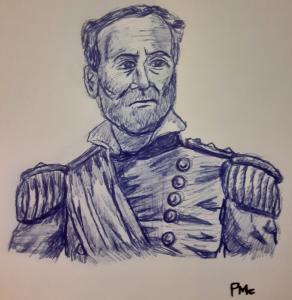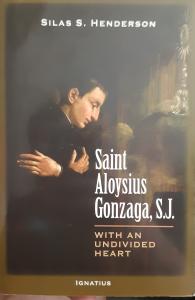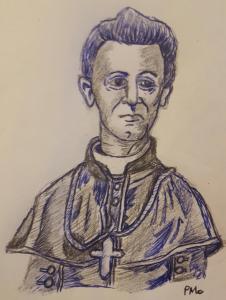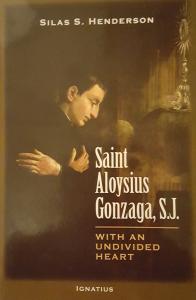![memorialoffirstc00shea_0087[1]](https://wp-media.patheos.com/blogs/sites/224/2013/06/memorialoffirstc00shea_00871-300x186.jpg) RECOLLECTIONS, GEORGETOWN COLLEGE IN 1820. Woodstock Letters (1885): 264-267.
RECOLLECTIONS, GEORGETOWN COLLEGE IN 1820. Woodstock Letters (1885): 264-267.
About the middle of the afternoon of September 15th or 16th, 1820, the stage from Baltimore rumbled into the yard of Georgetown College and set down a lot of unfortunates. Amongst them was your humble servant. It is 65 years since, and perhaps a few reminiscences of college and college life may not be without some interest to you. We were all well known to the Revd. Enoch Fenwick, who had for so many years been the pastor of St. Peter’s church, Baltimore, and who was then in his first year as President of the College. His kind smile and welcome took from us much of the rough edge of exile and made us feel at home.
The staff of the college, as well as I recollect, was Revd. Father Fenwick, Rector, and Father Cary, a Frenchman, I think, our Minister, and good old Fr. McElroy was treasurer. There was also a Fr. De Theux, who spent most of his time at the old college and did not come (except in the confessional) much in contact with the boys. Mr. Grace and Mr. Newton, scholastics, wielded their batons as prefects, and with Dr. Henry in the infirmary, Br. Drain in the refectory, Br. De Meyer as cook, and Br. Jordan as baker, who died at Newton in 1828, made up the executive officers of the College. I beg his pardon; but old Dick who lived at the gate and gave us our polished shoes on Sundays and Wednesdays of each week should have been named as one, in his own opinion, not the least in importance. I can hear him now in his darky magniloquence setting forth that one pair of boots was the equivalent of two pairs of shoes.
For teachers we had in rhetoric and philosophy, which were combined in the graduating class, Father Baxter, a full-blooded Englishman; he was very kind with all. He was in truth a rhetorician, and his sermons to us boys were, many of them, masterpieces. Two of them especially are still fresh in my mind. One was a Good-Friday sermon; the other a rehearsal, as it were, which he delivered in the College Chapel on the Sunday before the dedication of the Cathedral at Baltimore. Starting with the “Twelve Ignorant Fishermen” of Jerusalem on Pentecost, he went rapidly over the prospects of the church from country to country, coming back once in a while to the “twelve ignorant fishermen,” which formed the key-note to the symphony.
Then there came for the other classes Mr. Van de Velde, afterwards Bishop of Chicago, Mr. Neill, Mr. Finnegan, who is still living at Conewago; Mr. McCarthy, a mercurial little Irishman, had charge of the third grammar class and counted me amongst his victims, whilst the rudimentals were consigned to Brother Moberly who with his dogwood jackanapes, as he called it, ruled over his class in one of the rooms off the long passage. In mathematics and its kindred sciences we had Father Toomey, and he was succeeded by Fr. Levins. Both were men of great abilities, but they passed away from the College in a manner that baffled our boyish curiosity. In my second year I had Mr. Finnegan as teacher and was there when he became unwell. My last two years were under Mr. Callaghan of Baltimore. He was a fine belles-lettres scholar, and had a better gift of imparting knowledge than any teacher I ever had. He did not remain in the Society. He drifted about Washington for a few years as a translator and copyist in some of the departments and disappeared.
I wonder if the “College Journalists” know that away in those far off ages we had our college paper, “The Minerva.” It was in manuscript; the contributions were by the rhetoricians, and at the time we thought them quite equal to many of the printed pages that came to our notice. But the labor of copying it to be read to the boys trenched so heavily on recreation that with all its talent it only survived a few issues. Perhaps, in some pigeon-hole about the College you might unearth a copy. About that time there was a learned newspaper discussion in Washington, on some chemical question. One of the writers called himself “Jem the Sawyer.” I have forgotten the other nom de plume, but after a while Fr. Levins came out as Philo Junior and demolished them both. We college boys took it, each and every one, as a personal triumph.
Our day at College commenced in summer a 5, and in winter at 5:30 A.M., by a run out to the pump for a wash. A long line of roller towels was hung between two locust trees nearly opposite the College door. In the winter of ’22 and ’23, luxuries began to creep in, and we had a wash-room extemporized in the small boys play-room, but in the summer we took our ablutions at the nozzle of the pump. Morning prayer, Mass and studies took up the time till breakfast. Our bill of fare at that meal was monotonous—bread and coffee. Butter was an unknown factor in our menu, except occasionally at dinner on fish-days, and semi-occasionally, if I may use the word, at breakfast, for Christmas, Easter, and the Sunday that closed our annual retreat. After a short recreation of half an hour, classes commenced, and went on regularly until about 11:30, when after half an hour’s recreation we had dinner. No doubt the food was good and wholesome, for we all throve on it, but to us, all the meat was sheep meat, and the teas was known as shoe-string tea. Some wag of a boy saw Souchong on a tea-chest, and gave the name a free translation as above. But the coffee was too good to have a nickname; every boy of us relished his two bowls every morning. A short visit to the chapel after dinner was followed by recreation for an hour and a half. During the first hour the study-room was locked, and no one was allowed to have a book of any kind, a very good rule, but in our case a useless precaution; for I don’t think any of us were given to private study. A half hour’s study was followed by the afternoon classes till about four, when we had our piece of bread, and I can see the boys even now, climbing up and reaching for the toothsome bottom crust. A recreation of an hour and a half was followed by Rosary and evening studies, then supper of bread and tea. We had recreation in the play-rooms till 8 o’clock, when after night prayers in the chapel we went to the dormitory, and very soon all were sleeping the sleep of tired school-boys.
The college records will show that in these years the number of scholars was very small, and my memory is that the discipline was very lax. In 1821, I think, Frs. Dzierozymski and Sacchi came over. Father Zero, as we called him, was mostly with the Jesuits in the old college. Fr. Sacchi tried (but not with success) to improve the college discipline. It was not until the return of Frs. Mulledy, Fenwick, Ryder and Young and under their administration the College lifted up its head again, and continued to thrive until the war which took away all its Southern scholars. Since the war, it has again resumed its prestige, and now the spires of the University say to those in its study-rooms and classes: Sic itur ad astra.
Georgetown College need not blush when she looks at the records of her students. To say nothing of the many distinguished Jesuits that have come from within her walls, she cane point with pride to many of her sons that adorn both the legal and medical professions, and many a hillock in the South covers the remains of some gallant soldier, who drew his first patriotic instincts during the years he spent at the College.
Of all my school-mates I can only call to mind as still living, the Hon. Charles J. Faulkner of Va., Dr. De Loughery and Austin Jenkins of Baltimore. Mr. W.W. Corcoran of Washington, Hon. John H.B. Latrobe and professor Clarke of Baltimore had been there and left before my time. From them you might get some memoirs of college days and experiences much more to your purpose than anything that I have given you.
J.W.J.











